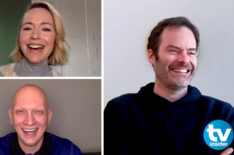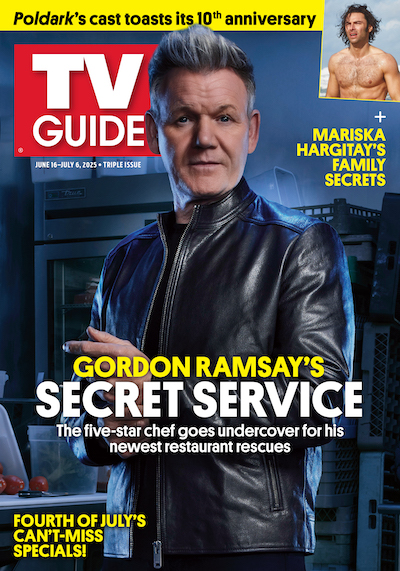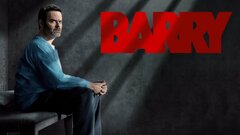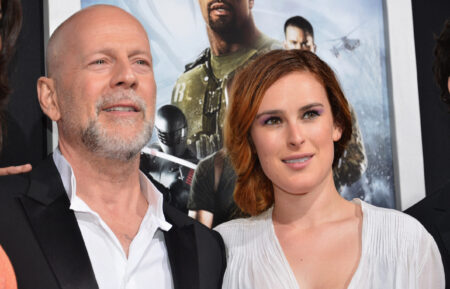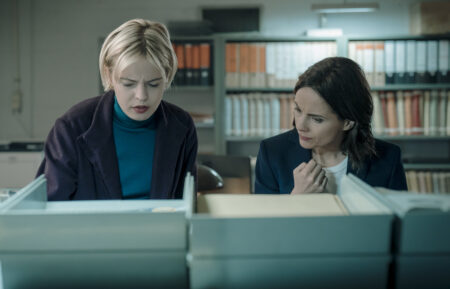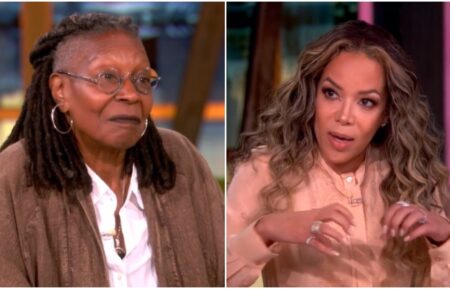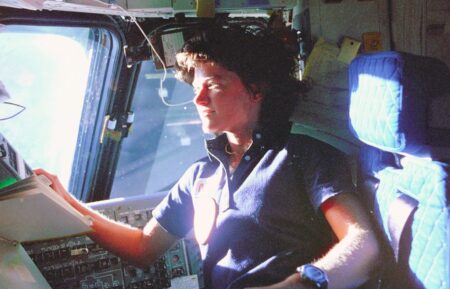‘Barry’: Stephen Root Talks Series Finale Violence, Fuches’ Confidence & More
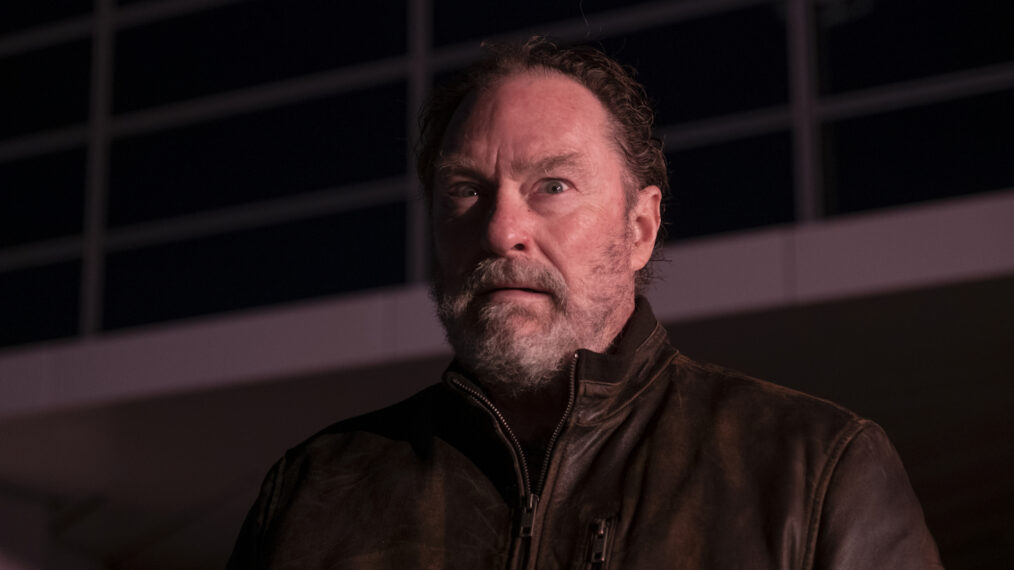
Spoiler Alert
[Warning: The below contains MAJOR spoilers for the Barry series finale “wow.”]
Barry could only end with violence — and that’s exactly what happened in the series finale, written and directed by Bill Hader.
Noho Hank (Anthony Carrigan) was killed by Fuches (Stephen Root), after refusing to make a deal with him; everyone else present — except Fuches, Sally (Sarah Goldberg), and her and Barry’s son, John (Zachary Golinger) — was also shot. After a brief reunion with John, Barry went to see Gene (Henry Winkler), who killed him. The series ended with John watching the Hollywood version of what happened between Barry and Gene, which painted the acting teacher as the bad guy, and before the credits featured “Gene is currently serving life in prison for the murders of Janie and Barry. PFC Barry was laid to rest in Arlington National Cemetery with full honors.”
Root takes us inside the finale, ponders what’s next for Fuches, and more.
What a finale! Talk about reading the script.
Stephen Root: I didn’t read the script so much as I had talked to Bill about it for a while about what was going to happen and the particular pieces of what Fuches was going to go through. It’s almost as if Fuches came out the other side and went away after the events.
But as with all these beautifully written scripts for the show, I really didn’t like to read them too closely because as a fan, I wanted to see them on the screen completed as well. But I was so happy with the way Bill wanted to complete this journey for the show. I think somebody who has gone through PTSD, they’re not going to get better, and the reality of the show is the real violence in this show has to happen. So I completely agree with Bill and where he went with this show and with this episode.
Before Fuches saw Barry’s son, what was his plan for Barry?
I think they were the same as all of his plans for Barry, when he’s upset with him, which is to kill him as quickly as possible. I think that’s the magic ingredient that melts Fuches when it comes to Barry is their relationship from the time Barry was seven years old. He’s been an ersatz father figure to him. And when he got the information that he had a son, that completely changed him yet again. Fuches goes on and off and on and off hating and loving Barry, but deep down in the reality of his life, he loves Barry. He was a surrogate father to Barry. So the moment that he found out he had a son, I think that changed his whole complexion. And I’m really glad that it didn’t get revealed to Fuches’ character until the last show.
Once he was on his way after Hank’s call, did Fuches know what he was going to do once he got to the meet?
No, I don’t think anybody knew. They could have come to a resolution and Fuches several times said, “OK, you don’t want to do this. Well, let’s do this. You just have to admit this.” And of course he couldn’t do it. But no, I don’t think there was any thought at all that he couldn’t make a deal as it were to get this done because at that point, he still wanted to kill Barry.
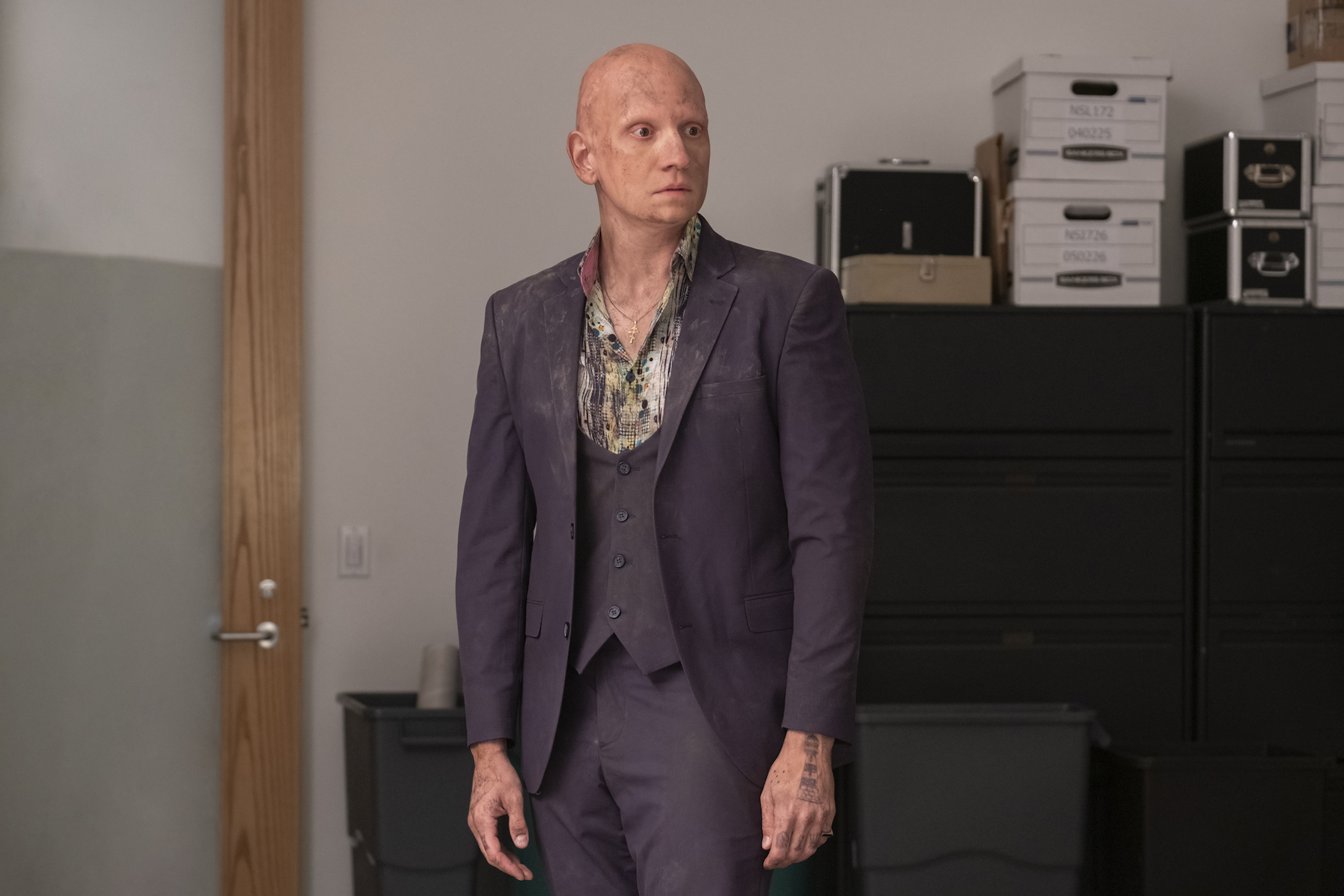
Courtesy of HBO
Yeah. But also it kind of feels like that partnership between Fuches and Hank was never really going to work. It didn’t seem like any type of deal could really work out for the two of them in the long run. And then we got that moment of Fuches killing Hank, which was a wild scene to watch.
[Laughs] It was a crazy scene to shoot. We shot at a huge kind of cathedral building outside of Los Angeles, and just the fact that you almost felt like you were in a cathedral made it even more surreal. The gunshots sounded louder and the place that you were doing it in, you felt like you were in a church. So it was a really bizarre and wonderful experience.
What was your reaction to Fuches being the one to kill Hank, especially after everything we saw between those two characters this season?
You have to remember earlier in Seasons 1, 2, and 3, Fuches and Hank were buddies and both loved Barry. At one point when we thought Barry was dead, we were on the phone to each other saying, “I love Barry. You love Barry. I miss Barry.” [Laughs]
That was such a good scene.
Yeah, it was a great scene. But I think they had such a longstanding relationship of loving Barry that it was completely shocking that Fuches finally went over the top and shot him.
Then there was a moment of Fuches protecting Barry’s son, the way he dove at him in the middle of the shooting.
At that point, after he’d shot Hank, then I think he made the decision in his head that he had to save the son. I think it was a split second decision, certainly not something that happened anytime earlier. Just right after he shot him, he went, “Oh, well, I’m going to save the son.” And he did.
Fuches has that line about being a man with no heart, but has he ever been that or does he want to or think he should be one?
I think when he got that moment of respect in prison, that changed him entirely so that in fact, he even says to Hank, “I found myself,” and he did. He was in prison for a long time, but that moment made him into “The Raven,” somebody with respect because he had never had that kind of respect in his life. He was always a conniver and a ne’er-do-well, and once he got this respect, it changed him. So that was everything. And that’s kind of the central theme of the show, as Bill said. By the end of the show, everybody has been changed into somebody else.
What would Fuches think of Gene killing Barry?
[Laughs] I think he would hate that anybody killed Barry because he had a son, obviously. But I think he would say, “Good on ya. I’m glad you got the balls.”
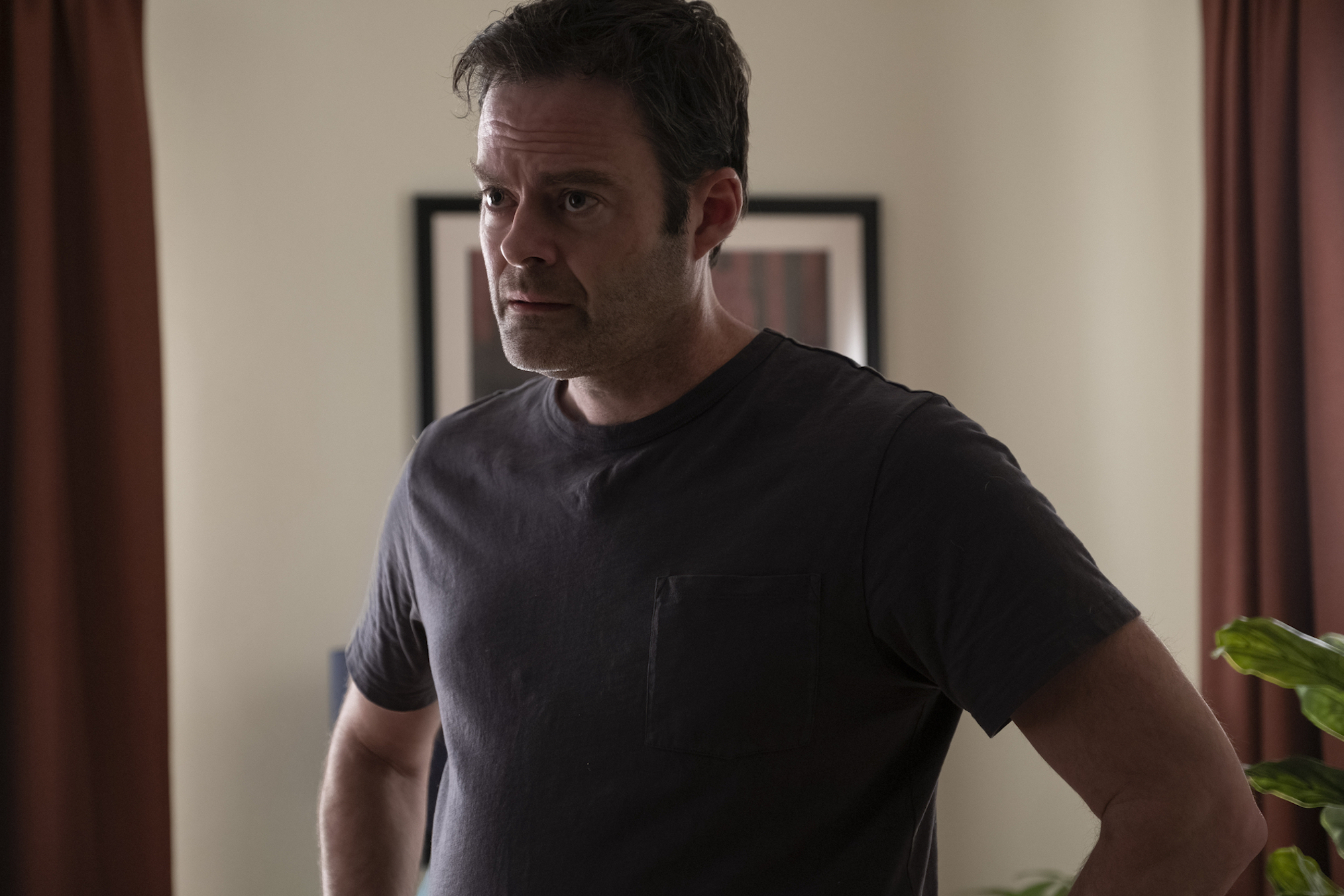
Courtesy of HBO
Taking Barry’s son out of the equation, could Fuches have ever actually killed Barry?
I don’t think so. I think he deep down loved him too much because of their relationship from when Barry was seven. I think no matter how much Fuches says he wanted to kill Barry and has said he wanted to kill Barry throughout all seasons of this show, it would be almost impossible for him to actually do it.
Yeah, that seems like one of the lines that he just couldn’t cross.
I agree.
What do you think the future holds for Fuches after we last saw him?
Knowing his character as I do, he’s going to go find a young man to do exactly the same thing, but with a lot more confidence than he had when he worked with Barry. I think he would be successful in it as well. I think he’s got the confidence to do what he wants to do now. I think he’s still kind of dumb, but he does have a great confidence in himself and I think he would be successful in recruiting somebody to start the hitman business again.
What would most surprise the Fuches we first met about the Fuches we last see?
I think it’s his getting respect. That’s the whole reason that he changed into the “other Fuches.” He never had respect until he finally got respect in prison and then he changed. So I think that’s the watchword, is respect, for Fuches.
What was the last scene you filmed?
We did some reshoots after the last show. So although the last scene I had in the cathedral was the last one I filmed, we did a reshoot of me in the car traveling to go over to the cathedral to have that shootout. And it was a short thing where Bill just wanted to show a little softer side of Fuches that’s like, he didn’t really want to do this, but I’m going to go do it. So we did that short scene in the car leading up to the cathedral shootout.
How will you remember Fuches and the show?
With fondness and the fact that I’ve got six new friends, even if the show’s gone. So I think there’s very few shows that you are able to keep friendships out of after you finish the show. This is one of them. I love these people and I want to continue seeing them and be around them.
How do you want Fuches and the show to be remembered?
As a perfect ending to a series. There’s a lot of series at the end that I’m not happy with how they do, but I think this shows a reality and a brilliant writing staff at their peak. I think this is one that will be remembered like The Wire is remembered or Game of Thrones or anything that has really come to fruition and ended successfully and beautifully. And I hope it’s remembered as being a great capsule show.
Talk a bit about working with Bill, especially as a scene partner and director. What will you remember most about that?
I loved working with him, even though I made fun of him all the time because since he’d written the script, sometimes he would mouth your words while you were doing the scene with him, and you’d have to go, “No Bill, these are mine. I have to say this.” But he was always very, very generous, almost to a fault, when you were doing a scene with him because if he was directing or he was writing, he would almost do only a couple of takes of his side of the scene and then give you a little more because he really had it in his head what he wanted to see. But he was always extremely generous and open to all suggestions of what you wanted to do — whether or not we took them, we might have filmed them and not used them — but he was very, very generous with letting you get out what you wanted to do in the scene. And that’s everything about this show. Why must this scene take place? And we got it answered through a collaboration, which was fantastic.
Did you take anything from set?
They had made a sticker of The Raven for a coffee cup and I just stole the coffee cup.
Barry, Streaming Now, Max
From TV Guide Magazine
Behind the Scenes With Gordon Ramsay: 20 Years of Cooking Up TV Hits
The celebrity chef reflects on redefining culinary television and his fiery journey Hell’s Kitchen to Secret Service. Read the story now on TV Insider.

